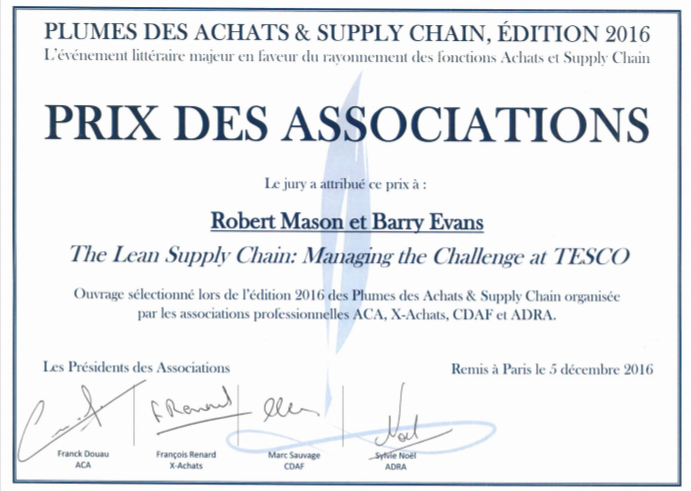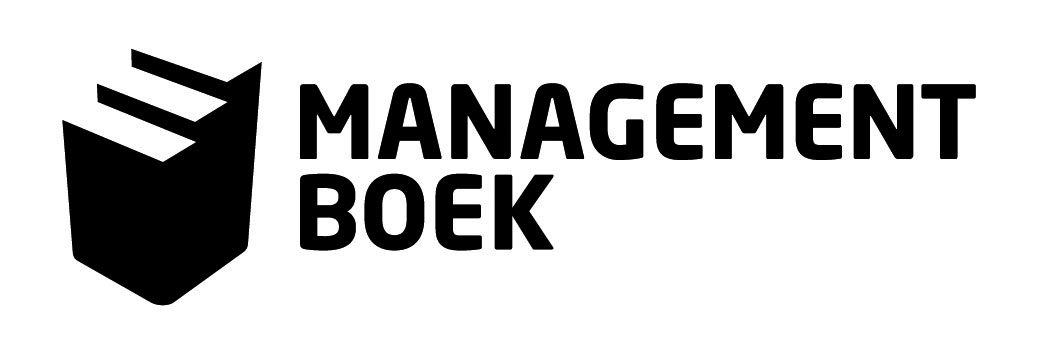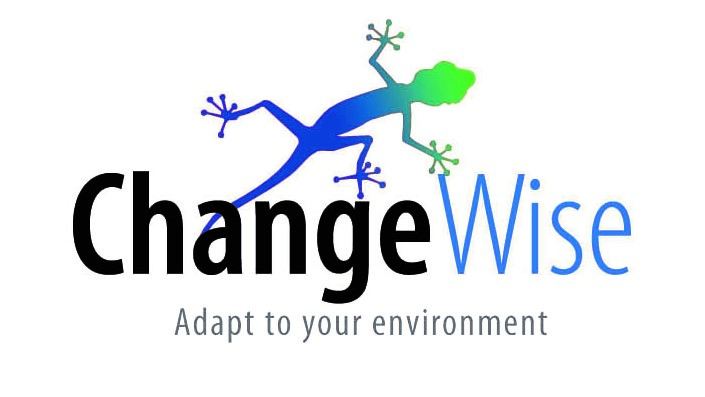Tesco Book Wins Prestigious Prize
 The book The Lean Supply Chain: Managing The Challenge at Tesco by former LERC members Barry Evans and Robert Mason of Cardiff Business School has been awarded a prestigious prize in Paris in December from Les Plumes des Achats et Supply Chain.
The book The Lean Supply Chain: Managing The Challenge at Tesco by former LERC members Barry Evans and Robert Mason of Cardiff Business School has been awarded a prestigious prize in Paris in December from Les Plumes des Achats et Supply Chain.
This book examines how Tesco built one of the world’s most successful supply chains, assesses its most important innovations and examines how it is dealing with current challenges in order to maintain its market dominance.
Barry Evans also co-authored with Simon Elias an LCS website article in 2015 titled Tesco: Lean Retailer Lost?
New Accreditations
Congratulations to Aros electronics AB and Managementboek for their recent accreditations.
Aros electronics AB
 Based just south of Gothenburg in Sweden, Aros electronics provides electronic solutions for motors and drives, covering the whole range from developing and producing electronics (mechatronics) and is also active in the aftermarket. Its customers include Volvo, ABB Robotics and a range of both Swedish and foreign customers. Sweden, Germany and Belgium are its main current markets today and it also exports outside the EU.
Based just south of Gothenburg in Sweden, Aros electronics provides electronic solutions for motors and drives, covering the whole range from developing and producing electronics (mechatronics) and is also active in the aftermarket. Its customers include Volvo, ABB Robotics and a range of both Swedish and foreign customers. Sweden, Germany and Belgium are its main current markets today and it also exports outside the EU.
Its growth plans require a degree of culture change and its LCS accredited training is expected to play a role in inspiring its employees to change their mindset from batch-thinking to a flow-orientation. It also sees the LCS having a role in staff retention and development.
Managementboek
 Part of MainPress BV and based Schiedam near Rotterdam in the Netherlands.
Part of MainPress BV and based Schiedam near Rotterdam in the Netherlands.
Managementboek’s background is in business publishing and through the Managementboek Academy, it delivers workshops, seminars and masterclasses and is now expanding with the development of LCS accredited e-learning courses, called Active Lean.
Check out this short video introducing the course.
LCS Briefing: ISO 18404
Following the launch of ISO 18404, the LCS has started examining its various features and components in an attempt to explain it to the LCS community. The results to date are outlined below in a ‘question and answer’ format.
These may be updated as feedback is received and more information comes to light. Note that quoted text is taken from ISO documents or sources and that the analysis largely takes a UK perspective. Of course, as no organisation has yet been certified it will be some time before the experience can be assessed and judged.
The sources for the analysis include ISO related presentations, videos, ISO documents, websites and social media blogs.
What is it?
From the Swiss headquartered International Organization for Standardization, launched in December 2015, it “presents the opportunity for internationally recognised certification of both organisations and individuals as competent practitioners of both Six Sigma and/or Lean”.
Its full title is ISO 18404:2015: Quantitative methods in process improvement – Six Sigma – competencies for key personnel and their organizations in relation to Six Sigma and Lean implementation.
This seems to replace a standard that has been around for some time – ISO 13053 – though this has been largely ignored (also see BSI shop)
Why was it developed?
Because of the perceived lack of standard definitions for lean and six sigma competency, the presence of no regulation and “considerable abuse” and the variability of different providers. It also aims to “avoid questionable interpretations of Six Sigma and Lean”.
Note that much of the evidence to support this appears to be anecdotal. An LCS study of the CI Qualifications Landscape in 2015 (presented at that year’s European Lean Educators Conference) commented on the significant growth of CI related qualifications, along with issues of variability, unregulation and presence of conflicts of interest. It also expressed a view that ‘market forces’ were beginning to influence the shape of the market, particularly in the US, and that the broad area lacked information based on empirical research.
Who came up with it?
An ISO technical committee devised the standard. The committee is MS/6: methodologies for business process improvement using statistical methods. We have little information to date on its composition, nor on how much consultation was involved with enlightened stakeholders. Its name does suggest a Six Sigma bias, and it does not sit comfortably with the LCS understanding of contemporary lean thinking.
How much does it cost?
Costs appears pretty opaque at this stage. Some reports state it will be “about 60%” of typical ISO 9001 costs.
There are likely to be several areas which will attract costs. These could include fees for preparation courses, individual certification via Royal Statistical Society (see below), external auditing costs, internal auditing costs, annual personal renewal of certification.
How does it define Lean and Six Sigma?
The ISO committee decided to treat Six Sigma and Lean separately, along with a combined Lean and Six Sigma. Note that it chose not to recognise Lean Six Sigma, despite the fact that the term is used extensively by many organisations to describe their CI approach. The LCS notes that in its experience, organisations tend to combine several tools, techniques and methodologies to create their own bespoke CI approach that suits their culture, context and business environment. It is difficult to see how the ISO stance can be reconciled with this, making it appear a somewhat dated perspective.
What qualifications does it offer?
ISO has created three levels each for lean and Six Sigma:
LEAN: 1) Lean Practitioner, 2) Lean Leader, 3) Lean Expert. SIX SIGMA: 1) Green Belt, 2) Black Belt, 3) Master Black Belt
What is the approach to knowledge & competencies?
It focuses on the competencies (skills and abilities) to deliver benefits to an organisation, rather than defining the specific educational level required for each role. Six Sigma, Lean and Lean & Six Sigma treated separately and ISO has defined 23 Six Sigma competencies and 18 lean competencies. There are defined roles and competencies for each level.
For lean, the competencies are diverse and include ‘creativity thinking’, ‘workplace optimisation’, ‘lean techniques’, ‘sustainment’ and ‘presentation and reporting skills’.
How does an individual become certified?
This has to be undertaken, surprisingly, via the Royal Statistical Society (RSS). A portfolio of evidence is developed and maintained and an annual renewal of certification required, along with an updated evidence portfolio.
ISO is used to its standards fitting neatly into industry sectors, where a responsible body can be given authority to police and oversee. Lean, of course, is cross-functional and enterprise wide and does not conform to such silo thinking. Our view is that the RSS was selected largely because of Six Sigma’s statistical and data orientation, though it is not a natural fit with lean.
RSS certification comprises of a 3 hour written test based on a real life scenario, a 20 minute presentation on the background/suitability for the role to be assessed, a 30 minute panel interview and candidates are required to submit a portfolio of evidence that demonstrate how they meets the standard.
The fees for initial individual certification range from £700 to £1,200 per person.
How does an organisation become certified?
Organisations will apply to a UKAS accredited body (typically like BSI, Lloyds), which will inspect organisations against ISO18404, to ensure that they all interpret the standard for certification in a similar way. We understand a pilot accreditation project is ongoing.
What will be audited?
ISO will require evidence of the “adequacy of an organisation with regards to its Six Sigma, Lean or Lean & Six Sigma approach and deployment” in terms of: strategy, architecture, competencies of the key personnel, continual improvement of organisational deployment. It also covers resource management and ongoing monitoring requirements.
“The inspection & certification process is likely to an extent be similar to ISO 9001 certification”.
What is the approach to maintaining competence of key personnel?
Green Belts/ Lean Practitioners will need to prepare and produce work experience logs. Logs form the basis of status review; usually be reviewed internally every year by a Black Belt or Master Black Belt. Status renewed subject to evidence.
Black Belts / Lean Leaders will need to prepare and produce work experience logs. Logs form the basis of status review; normally will be reviewed internally every year; reviewed every three years by an appropriate authority. Status will be renewed subject to satisfactory evidence.
Is it accepted worldwide?
ISO standards are generally used on a global basis, though the latest information we have indicates that the USA has not accepted it.
How does it compare with the LCS?
The LCS and ISO18404 are not strictly comparable, with different purposes and underlying philosophy, a different perspective on lean/CI, and a different scope and focus. They compete in the area of personal certification.
The main differences with the LCS are summarised as follows:
|
|
Any critics so far?
There are some long standing critics of ISO, such as John Seddon; see The Case Against ISO, though this specific standard is starting to provoke comment in various blogs and forums.
Professor Christoph Roser of the Karlsruhe University of Applied Sciences blogging on AllAboutLean.com thinks that such a “complex body of knowledge and experience like lean cannot be squeezed into a standard.” and sees it as much as a money making exercise as anything else.
The TQMI training & management consultancy has asked if it will add value and concludes that at this point it’s difficult to see whether or not it will add value to organisations.
John Dennis, a lean Six Sigma trainer and coach, says that “most customers of certifications are simply not going to want to participate in the proposed ISO 18404 process that requires documented evidence of projects spanning several months or years, and an interview with members of the Royal Statistical Society in London”.
The thinkpurpose blog is, not surprisingly, negative (“defining something in a document and then sending people in to inspect for it does NOT put that quality into an organisation. It puts documents into that organisation.”) and ISOwatch contends that “still unable to admit that it doesn’t work to manage people as if they were manufactured objects, the ISO has again plagiarised other quality management systems into its latest expensive document. That will stop a lot of employees doing more useful things.”
German First For LCS
Congratulations to E.ON on achieving LCS accreditation
E.ON is one of the world’s largest utility service providers, focusing on three core businesses: energy networks, customer solutions and renewables, with about 40,000 employees and a 33 million international customer base. It is the first German based international business to become accredited.
E.ON has built a strong Operational Excellence (OE) programme to develop the appropriate employee CI competencies, with a robust, strategically aligned OE framework focusing on systems, process and people.
A particular feature of the training system is its integrated learning approach and practical emphasis, while its Essen-based Centre of Operational Excellence team has an impressive capability that should enable it to provide direction, coordination and support to the business.
New Accreditations
Congratulations to National Instruments, ChangeWise and ID@5 on becoming newly accredited and for Nationwide Building Society for its recent re-accreditation.
National Instruments
 Founded in 1976, National Instruments (NI) is a global leader in test, measurement and control solutions and provides powerful, flexible technology solutions that accelerate productivity and drive rapid innovation.
Founded in 1976, National Instruments (NI) is a global leader in test, measurement and control solutions and provides powerful, flexible technology solutions that accelerate productivity and drive rapid innovation.
The company’s long-term vision and focus on improving society through its technology supports the success of its customers, employees, suppliers and shareholders. A commitment to innovation and continuous improvement has been one of NI’s underlying core values ever since its foundation in 1976. It has over 7,000 employees and its headquarters in in Austin, Texas.
ChangeWise
 ChangeWise provides consultancy, training and practical tools to engage, transfer skills and coach people to improve their workplace, embed successful change and adapt to their competitive environment.
ChangeWise provides consultancy, training and practical tools to engage, transfer skills and coach people to improve their workplace, embed successful change and adapt to their competitive environment.
ID@5
 ID@5, based in the Netherlands, assists organisations in optimising business processes using Lean Six Sigma, through training, coaching and gaming to create enthusiasm among all stakeholders and support, believing that employees are responsible partners in improvement and innovation.
ID@5, based in the Netherlands, assists organisations in optimising business processes using Lean Six Sigma, through training, coaching and gaming to create enthusiasm among all stakeholders and support, believing that employees are responsible partners in improvement and innovation.
Nationwide Building Society
 Nationwide is the world’s largest building society as well as one of the largest savings providers in the UK and a top-three provider of mortgages in the UK. It is also a major provider of current accounts, credit cards and personal loans. It has over 14 million members.
Nationwide is the world’s largest building society as well as one of the largest savings providers in the UK and a top-three provider of mortgages in the UK. It is also a major provider of current accounts, credit cards and personal loans. It has over 14 million members.
It has a well developed Operational and Process Excellence strategy and is committed to continuously improving the way it works for the ultimate benefit of its customers and members.
Workware Gains LCS Approved Status
First LCS Approved Product
Following the launch of LCS Approved in the summer, the first product to achieve LCS Approved status is Workware, which has been recognised as a software application that supports and sustains lean enterprises.
 Workware, which is part of ActiveOps suite of software applications, is a cloud based operations performance management application that embeds lean principles and systems thinking into practical and highly usable tool sets for data capture, performance and capacity management which accelerate short and long term benefits of lean investment.
Workware, which is part of ActiveOps suite of software applications, is a cloud based operations performance management application that embeds lean principles and systems thinking into practical and highly usable tool sets for data capture, performance and capacity management which accelerate short and long term benefits of lean investment.
The challenge for many organisations remains how to effectively measure performance improvement and Workware not only provides robust comprehensive data, but also the functionality to drive performance improvement using Lean capacity management techniques. By embedding Workware at the heart of Lean programmes, organisations can not only support business cases for investment, but also generate the confidence and capability to drive very significant improvement through Lean.
LCS Approved
A factor behind the development of LCS Approved was the major challenge facing organisations using lean in identifying technology that encourages lean thinking and behaviour.The LCS Approved process aims to ensure that products can demonstrate they can play an important supportive role in the development of a lean enterprise and those using it can be confident it will reinforce and sustain lean management practices.
Workware: Key Points
- Workware provides service organisations with a complete approach to operations performance management – guaranteeing productivity improvement and delivering enhanced control that will support the drive for operations excellence.
- Based on the latest cloud technology Workware equips front-line managers with the capability to help operations managers and employees measure, plan and improve quality, compliance and service levels at an optimum cost.
- Workware can be deployed rapidly, complimenting existing enterprise applications, supports LEAN initiatives and other operational methods including the Active Operations Management method developed by ActiveOps.

